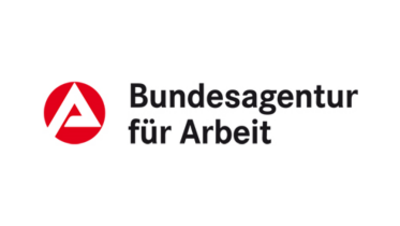
Prospects after vocational training
You already completed vocational training in Germany? Learn here what opportunities are open to you afterwards.
Have you already completed vocational training in Germany? Congratulations - you have thus laid an important foundation for your professional future! But what now? Whether it's starting your career, doing further training or even pursuing an academic degree - many paths are open to you in Germany. Find out in this section what options you have and how you can successfully build your career.
Working after vocational training
Working in the profession you were trained in after your vocational training is the classic path. In Germany, chances are high that your training company will hire you as skilled worker after you vocational training, because many companies are looking for qualified skilled workers. In addition, the company already knows you – a big advantage! If your training company cannot hire you or if you wish to take a different professional path, there are many options.
Plan in due time!
It is best to prepare your next steps during your vocational training, for example by doing research on interesting employers or by looking for job advertisements. Information on job-seeking and helpful tips for your application can be found in your “Looking for a job” section.
Jobhunting after vocational training
Subsequent to your vocational training, a residence permit for job-seeking in Germany can be issued to you for up to 18 months (according to Section 20(1) No. 3 of the Residence Act [AufenthG] . You may look for open vacancies in the “Make it in Germany” job listings.
![[Translate to English:] Explainer video: How do I find a job in Germany?](/typo3temp/assets/_processed_/1/5/csm_youtube_9b1c579177436b47318593079ae99f1d_80d434299a.jpg)
Video: How do I find a job in Germany?
Professional further education in Germany
Would you like to progress professionally, take on more responsibility or start a new career path? In Germany, there are numerous opportunities for further education, allowing you to deepen your skills, specialize yourself, advance in your career or even take the step towards self-employment.
The following paragraphs will give you an overview of formal offers for further education in the public education system. At the end of each further education measure, you will have a higher qualification of professional education. Moreover, there are other non-formal offers for education in many professions, for example via your employer, seminars, etc. Assessing what further education measure is suitable for your needs depends on your wishes, your line of profession and the sector you work in.
Vocational qualifications: new titles since 2020
Since 2020, persons with many qualifications acquired through professional further education are allowed to carry the title of “Bachelor Professional” or “Master Professional” (one level higher). However, the new terms are not always being used everywhere yet. Sometimes, you may only find the old ones, sometimes only the new ones and sometimes both variations.
Examined Professional Specialist, Expert Advisor, Service Technician
The first level, allowing you to specialise yourself and get a higher qualification is the qualification of “Examined Professional Specialist” (Geprüfter Berufsspezialist). This is possible in the field of IT, in service engineering for wind power engineering or service technology and certified dietary chefs, for example.
Bachelor Professional
The qualifications on this level are supposed to prepare persons with a professional qualification for taking on specialized and leading positions. They are equivalent to an academic bachelor’s degree.
- Technical professions: Did you complete a technical vocational training programme? Then a further education programme for the title of “State-Examined Technician” (Staatlich geprüfter Techniker; Bachelor Professional) might be interesting to you. This education programme takes place at a technical school and ends with a state examination. With participation on a full-time basis, the programme takes two years to be completed.
- Professions in the skilled crafts and trades: If you were trained in a profession of the skilled crafts and trades, you have the option of acquiring a master craftsperson’s diploma (Meisterbrief) for further education. The Meisterbrief is a state-recognised qualification, which enables you to take on leading positions or set up your own company. You title will then be “Meisterin/Meister” (Bachelor Professional). People with a Meisterbrief are even allowed to train apprentices in their profession. It also gives you the opportunity to study at a standard university or a university of applied sciences.
- Commercial professions: After finishing a commercial vocational training programme, too, you can go through further education and acquire specialized knowledge on the professional sector, prepare for managing and leading positions or obtain a generalized business qualification. Examples for the Bachelor Professional in this field include the professions of accountant and industrial business administrator.
There are also a lot of options for further education in other professional sectors, for example in specialized areas of expertise.
Master Professional
The Master Professional is the highest level of further professional education. This qualification is at the same level as an academic master’s programme. It is all about deepening the skills and knowledge acquired during the Bachelor Professional / Meister / Technician programme. Other examples for this level of further professional education are technical business economists and examined professional educators.
You can find more information on professional education for higher qualifications on the website of the Federal Institute for Vocational Education and Training and GOVET . On BERUFENET , you can learn what options are available for your specific profession.
Financial support for your further education
Do you plan on completing further education? You may be able to receive financial support via the Upgrading Training Assistance Act (Aufstiegs-BAföG). Find out whether you are entitled to be supported on the following website: www.aufstiegs-bafoeg.de .
Academic studies after vocational training
After your vocational training, you also have the option of starting academic studies at a university in Germany. As a rule, you will require a university entrance qualification (Hochschulzugangsberechtigung), meaning a certificate which already allows you to take up academic studies in your country of origin.
Alternative paths to academic studies
However, there are alternative options:
- With a German Meister title (see above: professions in the skilled crafts and trades), you can choose all courses of study at a German university.
- If you do not have a Meister title, but multiple years of work experience, you may take up studies in a subject-related field under certain conditions. Please consult the university of your choice to find out about the specific requirements.
Combining academic studies and work
If you would like to study but still stay employed, there are different models:
- Extra-occupational studies (simultaneously during the employment in part time or as long-distance education)
- Dual studies, combining theory (academic studies) and practice (vocational training)
Additional general information on academic studies in Germany can be found in our “Studies” section.
Information on the web
- Federal Ministry for Economic Affairs and Energy (BMWE) Info paper: The dual vocational training system in Germany
- Federal Employment Agency (BA) Tips for writing job applications
- Federal Institute for Vocational Education and Training (BIBB) Profiles of several occupations requiring vocational training
- Planet Beruf Find out which profession is best for you
- Youth migration services The advice portal for your life in Germany
Do you have any questions?
Let us advise you on your opportunities to work and live in Germany. Our experts will support you with questions regarding job search, visa, recognition and learning German.
You can find out more about the various contact options by clicking on one of the icons in the bar below.

![[Translate to English:] Erklärvideo: Wie finde ich einen Job in Deutschland?](/typo3temp/assets/_processed_/2/c/csm_youtube_b272f4eca24cc896849827904109b23e_d3bea852bb.jpg)


